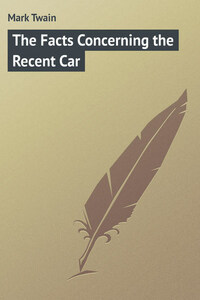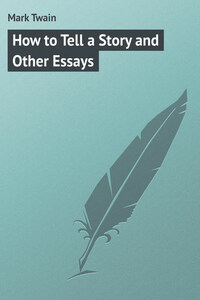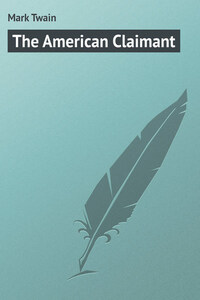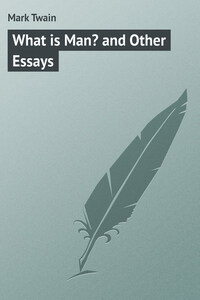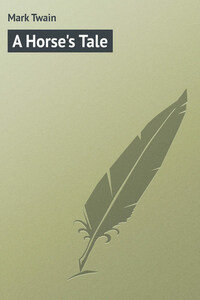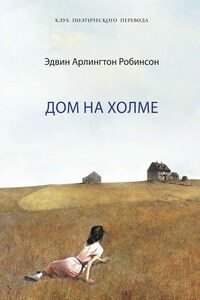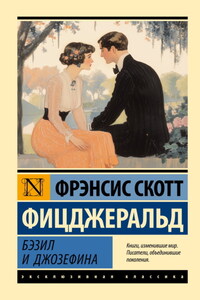The Facts Concerning The Recent Carnival Of Crime In Connecticut
I was feeling blithe, almost jocund. I put a match to my cigar, and just then the morning’s mail was handed in. The first superscription I glanced at was in a handwriting that sent a thrill of pleasure through and through me. It was Aunt Mary’s; and she was the person I loved and honored most in all the world, outside of my own household. She had been my boyhood’s idol; maturity, which is fatal to so many enchantments, had not been able to dislodge her from her pedestal; no, it had only justified her right to be there, and placed her dethronement permanently among the impossibilities. To show how strong her influence over me was, I will observe that long after everybody else’s “do-stop-smoking” had ceased to affect me in the slightest degree, Aunt Mary could still stir my torpid conscience into faint signs of life when she touched upon the matter. But all things have their limit in this world. A happy day came at last, when even Aunt Mary’s words could no longer move me. I was not merely glad to see that day arrive; I was more than glad—I was grateful; for when its sun had set, the one alloy that was able to mar my enjoyment of my aunt’s society was gone. The remainder of her stay with us that winter was in every way a delight. Of course she pleaded with me just as earnestly as ever, after that blessed day, to quit my pernicious habit, but to no purpose whatever; the moment she opened the subject I at once became calmly, peacefully, contentedly indifferent—absolutely, adamantinely indifferent. Consequently the closing weeks of that memorable visit melted away as pleasantly as a dream, they were so freighted for me with tranquil satisfaction. I could not have enjoyed my pet vice more if my gentle tormentor had been a smoker herself, and an advocate of the practice. Well, the sight of her handwriting reminded me that I way getting very hungry to see her again. I easily guessed what I should find in her letter. I opened it. Good! just as I expected; she was coming! Coming this very day, too, and by the morning train; I might expect her any moment.
I said to myself, “I am thoroughly happy and content now. If my most pitiless enemy could appear before me at this moment, I would freely right any wrong I may have done him.”
Straightway the door opened, and a shriveled, shabby dwarf entered. He was not more than two feet high. He seemed to be about forty years old. Every feature and every inch of him was a trifle out of shape; and so, while one could not put his finger upon any particular part and say, “This is a conspicuous deformity,” the spectator perceived that this little person was a deformity as a whole—a vague, general, evenly blended, nicely adjusted deformity. There was a fox-like cunning in the face and the sharp little eyes, and also alertness and malice. And yet, this vile bit of human rubbish seemed to bear a sort of remote and ill-defined resemblance to me! It was dully perceptible in the mean form, the countenance, and even the clothes, gestures, manner, and attitudes of the creature. He was a far-fetched, dim suggestion of a burlesque upon me, a caricature of me in little. One thing about him struck me forcibly and most unpleasantly: he was covered all over with a fuzzy, greenish mold, such as one sometimes sees upon mildewed bread. The sight of it was nauseating.
He stepped along with a chipper air, and flung himself into a doll’s chair in a very free-and-easy way, without waiting to be asked. He tossed his hat into the waste-basket. He picked up my old chalk pipe from the floor, gave the stem a wipe or two on his knee, filled the bowl from the tobacco-box at his side, and said to me in a tone of pert command:
“Gimme a match!”
I blushed to the roots of my hair; partly with indignation, but mainly because it somehow seemed to me that this whole performance was very like an exaggeration of conduct which I myself had sometimes been guilty of in my intercourse with familiar friends—but never, never with strangers, I observed to myself. I wanted to kick the pygmy into the fire, but some incomprehensible sense of being legally and legitimately under his authority forced me to obey his order. He applied the match to the pipe, took a contemplative whiff or two, and remarked, in an irritatingly familiar way:
“Seems to me it’s devilish odd weather for this time of year.”
I flushed again, and in anger and humiliation as before; for the language was hardly an exaggeration of some that I have uttered in my day, and moreover was delivered in a tone of voice and with an exasperating drawl that had the seeming of a deliberate travesty of my style. Now there is nothing I am quite so sensitive about as a mocking imitation of my drawling infirmity of speech. I spoke up sharply and said:
“Look here, you miserable ash-cat! you will have to give a little more attention to your manners, or I will throw you out of the window!”
The manikin smiled a smile of malicious content and security, puffed a whiff of smoke contemptuously toward me, and said, with a still more elaborate drawl:
“Come—go gently now; don’t put on too many airs with your betters.”
This cool snub rasped me all over, but it seemed to subjugate me, too, for a moment. The pygmy contemplated me awhile with his weasel eyes, and then said, in a peculiarly sneering way:
“You turned a tramp away from your door this morning.”
I said crustily:
“Perhaps I did, perhaps I didn’t. How do you know?”
“Well, I know. It isn’t any matter how I know.”
“Very well. Suppose I did turn a tramp away from the door—what of it?”
“Oh, nothing; nothing in particular. Only you lied to him.”
“I didn’t! That is, I—”
“Yes, but you did; you lied to him.”
I felt a guilty pang—in truth, I had felt it forty times before that tramp had traveled a block from my door—but still I resolved to make a show of feeling slandered; so I said:
“This is a baseless impertinence. I said to the tramp—”
“There—wait. You were about to lie again. I know what you said to him. You said the cook was gone down-town and there was nothing left from breakfast. Two lies. You knew the cook was behind the door, and plenty of provisions behind her.”
This astonishing accuracy silenced me; and it filled me with wondering speculations, too, as to how this cub could have got his information. Of course he could have culled the conversation from the tramp, but by what sort of magic had he contrived to find out about the concealed cook? Now the dwarf spoke again:
